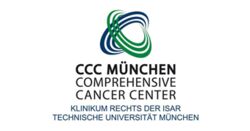Most advanced medicine with sensitive care
Interdisciplinary musculoskeletal tumor centre with a certified sarcoma centre
Every year, we advise and care for around 400 patients with newly appearing benign and malignant tumors of the musculoskeletal system and connective tissue in the tumor orthopaedics department at the TUM University Hospital in Munich. We accompany them step by step through the diagnostics and therapy phases with teamed-up expertise and loads of empathy. We give patients the best possible, individually tailored treatment based on leading-edge science.
Our high-level of interdisciplinary expertise gathered from around 8,000 cases and our state-of-the-art technical equipment enable us to quickly draw up an individually optimal therapy concept even for highly complex cases. We cooperate with specialists from various fields in our internationally renowned Tumorzentrum (Tumor Centre) and consequently are able to help patients quickly, personally and via the shortest possible routes.
In addition to the Muskuloskelettales Tumorzentrum (Musculoskeletal Tumor Centre), we supervise the interdisciplinary Sarkomzentrum (Sarcoma Centre), which had been certified by the German Cancer Society as well as the Arbeitsgemeinschaft Knochentumoren (Bone Tumors Working Group in Germany).
Our joint tumor conference has been in existence since 1972, making it the oldest event of its kind at the TUM Klinikum. All treatment data flow into a unique, state-of-the-art tumor database, which helps us to optimise therapy on an ongoing basis.
As a university hospital, we carry out our own studies and participate in specialist congresses around the world. Many of our patients travel long distances to benefit from our most advanced scientific findings and therapeutic methods.
- For patients of all ages, a complete treatment range for bone and soft tissue tumors
- Interdisciplinary tumor conferences (tumor boards)
- Most advanced tumor database with artificial intelligence
- Most advanced diagnostics, including radiological and nuclear medicine: for example, 3.0 Tesla MRI 512 slice MDCT, including metal artifact reduction sequences in the case of metal implants after fractures or endoprostheses, one of the world's first combined PET/MRT, PET/CT SPECT/CT
- Protecting, minimally invasive surgical techniques, including navigated tumor operations
- Biological reconstruction of the affected bone part with the patient's own bone material, if possible
- Own physiotherapy department
- Postoperative pain therapy in cooperation with the Zentrum für Interdisziplinäre Schmerztherapie (Centre for Interdisciplinary Pain Therapy)
- Psycho-oncological care, sports therapy and nutrition counselling by colleagues of our TUM University Hospital
- Naturopathic procedures
- Interdisciplinary oncological follow-up in close cooperation with private-practising colleagues
- Cooperation with cancer self-help groups and societies
- Teleradiological reference centre for private-practising doctors (second opinion)
- We always operate as protecting as possible.
- Besides removing of the tumor, our focus in surgical therapy is on preserving the limbs with the best possible functionality.
- If possible, we reconstruct the affected bone part with the patient's own bone material. Biological reconstructions are one of our specialist fields. If the patient's own bone is not available, we work with sterilised donor bones or bone cement. If required, we stabilise the bone pieces with a plate as a preventative measure.
- If a joint must be removed during the same tumor-resection procedure, it can be replaced by a tumor endoprosthesis.
- If there is an extensive joint and bone defect, we can replace both the joint and the bone near the joint with a megaprosthesis.
- Due to our high level of expertise, limb amputations for malignant tumors are now only rarely required.





